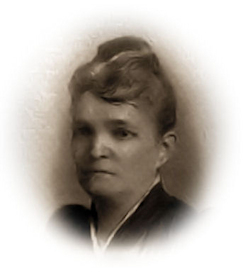June 7th, 1863. (In the cellar.)—I feel especially grateful that amid these horrors we have been spared that of suffering for water. The weather has been dry a long time, and we hear of others dipping up the water from ditches and mud-holes. This place has two large underground cisterns of good cool water, and every night in my subterranean dressing-room a tub of cold water is the nerve-calmer that sends me to sleep in spite of the roar. One cistern I had to give up to the soldiers, who swarm about like hungry animals seeking something to devour. Poor fellows! my heart bleeds for them. They have nothing but spoiled, greasy bacon, and bread made of musty pea-flour, and but little of that. The sick ones can’t bolt it. They come into the kitchen when Martha puts the pan of corn-bread in the stove, and beg for the bowl she has mixed it in. They shake up the scrapings with water, put in their bacon, and boil the mixture into a kind of soup, which is easier to swallow than pea-bread. When I happen in they look so ashamed of their poor clothes. I know we saved the lives of two by giving a few meals. To-day one crawled upon the gallery to lie in the breeze. He looked as if shells had lost their terrors for his dumb and famished misery. I’ve taught Martha to make first-rate corn-meal gruel, because I can eat meal easier that way than in hoe-cake, and I prepared him a saucerful, put milk and sugar and nutmeg—I’ve actually got a nutmeg. When he ate it the tears ran from his eyes. “Oh, madam, there was never anything so good! I shall get better.”
Note: To protect Mrs. Miller’s job as a teacher in post-civil war New Orleans, her diary was published anonymously, edited by G. W. Cable, names were changed and initials were generally used instead of full names—and even the initials differed from the real person’s initials. (Read Dora Richards Miller’s biographical sketch.)
